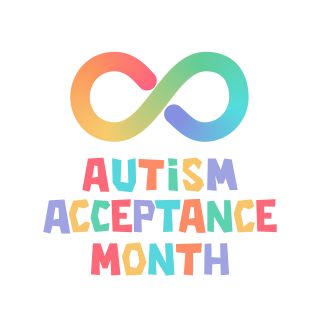Autism
This April Is Autism Acceptance Month
Why we should focus on accepting adults with autism this month.
Posted April 6, 2023 Reviewed by Vanessa Lancaster
Key points
- We commonly call April Autism Awareness Month, but most people with autism prefer to call it Autism Acceptance Month.
- Adults with autism usually lack validation.
- Adults who are diagnosed with autism late in life are often questioned and ridiculed.

April is Autism Awareness Month. Many adults with autism prefer it to be called Autism Acceptance Month. According to Clare Mulroy (USA Today, 2023):
Awareness campaigns have historically focused on how many people have autism or a search for a 'cure' for autism. A now-removed 2009 campaign from the advocacy organization Autism Speaks opened by saying, 'I am autism. I’m visible in your children, but if I can help it, I am invisible to you until it’s too late.'
The goal of the transition to using Autism Acceptance Month is to encourage the culture to accept those of us with autism as we are. The goal is to accept and validate us as humans with autism, not as diseases to be cured. As we enter this month, I want to focus on one of the major obstacles to autism acceptance. Many people and professionals tend to reject and invalidate adults diagnosed with autism later in life rather than in childhood.
I specialize in treating and testing people for autism. I use the same psychological testing procedures other professionals in the field use. The tests I use are reliable and valid. If necessary, I send people to other practitioners for second opinions. Yet almost every client I have has to face the same thing when they are done with testing. Almost all of them must deal with friends, family members, and other professionals that say, “I just don’t see that,” “You don’t have autism,” or “You don’t seem autistic to me.”
The first client I tested and diagnosed with autism was over 12 years ago. She was met with disbelief from every one of her family members, and her psychiatrist said, “That can’t be true.” This was particularly heartbreaking because she had struggled her entire life, and the diagnosis had explained why her life had been so hard and gave her a path to find new coping skills for life. So being told that the diagnosis that had been the greatest revelation of her life was essentially nonsense was gut-wrenching. It was so upsetting to her that she got tested by two local psychologists and found the same results, yet still, her family and her psychiatrist didn’t believe her.
Recently, I tested a woman; not only did her family and husband not believe her, but he also berated her for faking illnesses. This doesn’t happen with the children I test, only with the adults. I struggle within myself to explain why people react this way. I have done other psychological testing over the course of my career, and never has anyone angrily declared a client must not have depression despite extensive testing and the client’s feeling that they are depressed. There is a very specific reaction within the community to an adult diagnosis of autism that often comes close to rage. People, without much study or research into autism, feel very passionately that they know beyond a shadow of a doubt that someone can’t have autism without their approval.
I am not the only person who works with autism to notice this. Englebrecht (2022) stated,
Medical professionals do not recognize adult autism, especially late-diagnosed adult autism. Many people I assess describe being turned away by assessors, mocked by health care practitioners when they propose the possibility of autism. There is an acute absence of understanding that our preferred job choices tend to be actors, healthcare workers.
She goes on to say,
Our loved ones tell us that we cannot be autistic. In my journey of processing and understanding, I failed to understand that everyone close to me was also reevaluating their perceptions. They, too, were going back in time and having similar revelations. While we often turn to our loved ones for validation, this is an impossible thing to ask of them.
According to Dickter et al. (2022)
In addition, neurotypical adults and adolescents perceive autistic adults more negatively (e.g., more awkward, less likeable) than neurotypical adults, have misconceptions about autism, and are less willing to engage with autistic adults during a first meeting than neurotypical adults.
The truth is that most adults, even professionals in the mental health field, suffer from extreme misconceptions about autism that may be in part due to the history of autism. Autism first appeared in the Diagnostic and Statistical Manual-III (DSM-III). In the DSM-IV, what is now autism was listed under separate diagnoses within the pervasive developmental disorder category. This category included autism disorder, Asperger’s syndrome, pervasive developmental disorder NOS, Rett’s Disorder, and childhood disintegrative disorder. Asperger’s syndrome is what is now level 1 autism, popularly called “high-functioning autism.”
In 2013, the DSM-V was released and announced a strong shift in how the clinical community was supposed to relate to autism. Aspergers and PDD-NOS and others were merged into the autism diagnosis. Combining all these disorders into one disorder has led to numerous problems with how people understand and relate to autism in the media, popular culture, and individually. Most people don’t understand this history, and many people don’t even understand that autism is no longer looked at as only the most severe presentation of a subgroup of disorders.
Yet this doesn’t fully explain the anger associated with an adult diagnosis of autism. It explains why people don’t understand it, but it doesn’t explain why people are infuriated by the concept that someone might be diagnosed with something they don’t understand. Dickter’s research (2022) explains the importance of validation in their study and shows that lack of acceptance leads to a decreased effect in those diagnoses. So why can’t we begin to accept people’s diagnoses? Why are people so passionate about believing people are lying about having autism?
This April, for Autism Acceptance Month, maybe we can all let go of our judgment and just believe people when they say they were diagnosed with autism as adults.
References
Dickter, C. L, Burk, J.A, & Zeman, J (2020). Implicit and explicit attitudes toward autistic adults. Autism in Adulthood 2(2).
Engelbrecht, ND, RP (2022). Introducing autistic imposter syndrome. Embrace Autism. https://embrace-autism.com/introducing-autistic-impostor-syndrome/
Mulroy, Clare, (2023) It's Autism Acceptance Month! Here's what autistic advocates want you to know, and do. USA Today. https://www.usatoday.com/story/news/2023/04/04/what-is-autism-acceptanc…




